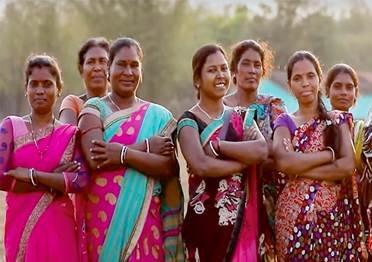New Delhi – The Government of India is actively advancing women’s political participation through a wide-ranging approach that brings together both government institutions and society at large. This comprehensive strategy addresses women’s empowerment across all stages of life and strongly focuses on enhancing their roles in governance and leadership.
One of the key outcomes of this ongoing effort is the growing presence of women in electoral politics. From a mere three percent of women contesting general elections in 1957, the number has risen to ten percent in 2024. In the Lok Sabha, women’s representation has increased from 22 members in the First Lok Sabha and 27 in the Second Lok Sabha to 78 members in the 17th Lok Sabha and 75 in the current 18th Lok Sabha, which is nearly fourteen percent of the total strength. In the Rajya Sabha, female membership has grown from 15 in 1952 to 42 at present, accounting for approximately seventeen percent of the Upper House.
At the grassroots level, India has made significant progress in empowering women through Panchayati Raj Institutions. The country now has about 14.5 lakh elected women representatives in PRIs, representing approximately forty-six percent of the total elected representatives, a figure that is unmatched globally. Additionally, 21 states have gone beyond the constitutional mandate of reserving one-third of PRI seats for women by providing fifty percent reservation.
A major milestone in this journey was achieved in 2023 when Parliament passed the Constitution (One Hundred and Sixth Amendment) Act, also known as the Nari Shakti Vandan Adhiniyam. This historic legislation mandates rotational reservation of one-third of all seats for women in the Lok Sabha and in all State Legislative Assemblies, including the Legislative Assembly of Delhi. This institutionalizes women’s representation at the highest levels of governance, making it a permanent part of India’s democratic fabric.
To further support women leaders, the government has launched the Sashakt Panchayat-Netri Abhiyan, a focused capacity-building initiative aimed at strengthening the leadership and decision-making capabilities of women elected to Panchayati Raj Institutions. Customized training modules have been developed to help these leaders navigate their responsibilities more effectively. A special handbook on laws addressing gender-based violence and harmful practices has also been created for women in panchayat leadership roles, helping them understand and address real-world challenges they often face.
In line with its goal to make governance more inclusive, the government has also launched the Model Women-Friendly Gram Panchayat Initiative. This programme seeks to establish at least one model gram panchayat in each district that is welcoming and safe for women and girls, thus reinforcing the dual objectives of gender equality and sustainable development in rural areas.
Additionally, the government continues to invest in women-led Self Help Groups as engines of rural change. Over ten crore women are now associated with more than ninety lakh SHGs across the country. With support from various government schemes, these women are not just becoming economically empowered but are also emerging as strong voices in their communities and taking on leadership roles at the grassroots level.
This information was shared by the Minister of State for Women and Child Development, Smt. Savitri Thakur, in the Rajya Sabha during a session today, affirming the government’s sustained commitment to building a more inclusive and representative democracy through women’s active participation.






